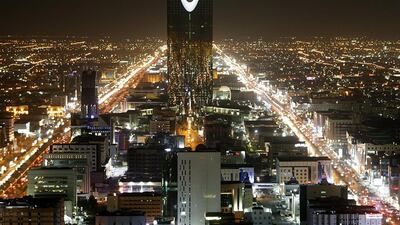The G20 action plan to rebuild the global economy in the aftermath of the Covid-19 pandemic will result in a funding boon for micro, small and medium-sized enterprises.
MSMEs are crucial for labour market growth – generating nearly 90 per cent of businesses and more than 50 per cent of all employment on a global scale – and remain at the heart of the G20 strategy for sustainable economic growth.
With a people-centric approach, the G20 Presidency under Saudi Arabia is committed to protecting lives and boost livelihood by supporting MSMEs, innovators that foster economic diversification and providing opportunities for women and youth to boost growth.
G20 High-Level Policy Guidelines on Digital Financial Inclusion for youth, women and SMEs framework also helps steer authorities to form the right policies to support financial inclusion, and to share the benefits of innovation and digitalisation.
Policy Guidelines on Boosting MSMEs’ International Competitiveness, endorsed by G20 Trade and Investment Ministers, aim to improve the capacity, efficiency and competitiveness of MSMEs, enabling them contribute to the global economic growth.
The Saudi Arabian Presidency aims to support MSMEs worldwide through collective actions of the G20, the group of the world's 20-largest economies, that have so far pumped in more than $11trillion into the global economy to help smaller business, protect jobs and boost financial stability. The unprecedented fiscal and monetary actions by the G20 have helped put a floor under the global financial markets.
The Covid-19 pandemic has tipped the world economy into its worst recession since the 1930. The International Monetary Fund expects the global output to shrink 4.4 per cent this year with only a moderate recovery next year.
The pandemic is still raging in parts of Asia, Europe, the Middle East and the Americas. However the G20 is committed to mitigate the impact of Covid-19, using all available policy tools to restore global growth, maintain market stability, and strengthen resilience for better global competitiveness and preparedness for all.
The G20 countries are currently employing fiscal tools and guarantee schemes to counteract the social, economic and financial impacts of the pandemic to help MSMEs navigate through the crisis.
MSMEs in Saudi Arabia, the biggest Arab economy and the world's top oil exporting nation, have benefitted from the 79 billion Saudi riyals ($21.07bn) deferred payments programme.
Saudi Arabian Monetary Authority (Sama) has already introduced additional measures to further soften the impact of the pandemic and to support business continuity during the current crisis. Banks and finance companies have extended more than 3,000 loans to MSMEs worth 2.5bn riyals through the lending programme.
The kingdom also aims increase access to funding for smaller businesses under the Vision 2030 and to encourage financial institutions to allocate up to 20 per cent of overall funding to SMEs by 2030.
While policy tools and funding are available in the larger economies to support smaller businesses, the risks are greater for MSMEs as they are disproportionately affected by the lack of resources, digitalisation, information and skills.
According to the World Bank, the Middle East and North Africa region has the largest global finance gap for SMEs as a percentage of total financing demand in the region, estimated at 84 per cent.
The G20 Extraordinary Leaders’ Summit in March laid strong emphasis in safeguarding the global economy by supporting MSMEs. The leaders’ mandate has resonated with all relevant tracks including the G20 trade and investment, digital economy, labour and employment, agriculture and finance ministers and central banks governors – all showing unanimous support for MSMEs.

